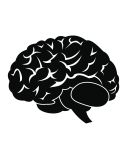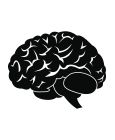By Daniel Robinson

Last July, I conducted 9,236 Google searches about anxiety and panic attacks. That is 298 searches per day. The 27-page Verizon bill that month was written proof that I had officially hit emotional rock bottom.
For many, technology has served as a glimmer of light helping to guide us through our darkest moments. The Web has given every small community and cause a face. Consequently, it has also caused many deeply buried issues to surface. My story exemplifies how technology paradoxically connected and isolated me in my greatest time of emotional need.
I experienced my first panic attack in July 2014. The sudden sensory tidal wave destroyed my wall of confidence. It undermined my belief that I could take on the challenges of the world. My anxiety disorder paralleled Dorothy's trip down the yellow brick road. Every time the Wicked Witch materialized, I would stumble through the dark, tripping over the uneven and scattered bricks. The horrific journey caused me to question my courage, sanity, and emotional grounding. I lost the ability to differentiate between real danger and the fear of perceived danger.
In a recent study conducted by Psych Central, anxiety disorders have become the most prevalent mental disorder on college campuses. At a rate of 19.6%, they are more prevalent than substance related issues and depression combined. While nearly 25% of college students meet the diagnostic criteria for anxiety and depression, according to the National Alliance on Mental Illness (NAMI) only 10% of students seek help through their school's counseling services, or from outside psychological practitioners. According to Active Minds, the primary reason why the other 15% are afraid to reach out is due to the stigma surrounding mental health issues. So where do these students go to find help? In an attempt to self-diagnose their mental health issues, they obsessively contact the hottest mental health professional in town: 'Dr. Google.'
Patients who suffer from anxiety disorders often experience both mental and physical sensations that appear inherently life threatening, when in fact they are not. When I was experiencing frequent panic attacks I often felt as if I was losing my mind or dying. One of the pronounced features of my anxiety disorder was the presence of somatic symptoms such as sweating, nausea, dizziness, accelerated heart rate, etc. I became overwhelmingly focused on the smallest, perceived "untreated" health-related issues. For today's college students, this has translated into an unofficial form of hypochondriasis, known as cyberchondriasis. MedTech defines this as an “unfounded escalation of concerns about common symptomatology, based on the review of search results and literature on the Web.” The legitimization of these sensations coupled with a fear of being stigmatized by peers, has allowed the Internet to become the diagnostic tool of choice, mollifying the need to obtain legitimate medical help.
The negative connection between the Internet and mental health is not a new idea. A Missouri University of Science and Technology study of various types of internet usage found that certain types of internet behavior directly correlated with the likelihood of depressive symptoms. A 2011 finding published in the International Online Journal of Educational Studies, concluded that excessive Internet usage could be a significant predictor of anxiety disorder. Psych Central also found that sufferers of social anxiety are nine-times more likely to maintain a relationship using an internet camera rather than face-to-face contact, and 13 times more likely be found in a relationship involving video chatting than true romantic relationships. It is clear that the Internet possesses highly addictive qualities that have the ability to compromise pro-social behaviors.
Despite these studies, I believe the Internet can provide a unique type of support to people suffering from anxiety and depression. If nothing else, it allayed my fear that I was the only person experiencing this. It provided me with the initial strength to search for an answer as to how to return to normalcy.
With each search from my phone, I often found support in the Internet communities of people describing similar experiences. I educated myself on anxiety disorders and depression, trying to make sense of the seemingly endless nightmare I was living. And yet, the freely available and not always reliable information posed a different problem when explored without the filter of a mental health professional. After a disastrous adverse reaction to an anti-anxiety medication, I “Googled” innumerable sites on psychopharmacology to ensure that the next medication I would inevitably try would be efficacious. I learned everything: the side effects; the neurotransmitters involved and the dosages. I looked up every single physical sensation I was experiencing as a result of the anxiety.
I began experiencing symptoms of medical conditions I had researched on the Internet including migraines, IBS, low-blood pressure, high blood pressure, hypomania, inner-ear infections, and, even at one point, a stroke. This resulted in multiple doctor visits, an MRI, and daily blood pressure checks at CVS. I prayed that there was a simple pill that could resolve my physical symptoms. Over time, I began to realize it was just my anxiety. This liberating yet depressing conclusion ultimately forced me to seek true mental health intervention and for that reason, I am thankful and now healthy again.
My experience with anxiety has taught me that the Internet is not an effective alternative to proper mental health treatment. According to MedTech, a recent Pew Research Center study concluded that more than one-third of American adults have used the Internet to self diagnose a medical problem. However, according to MedTech, doctors only confirm a patient’s suspected self-diagnosis 41% of the time. Thus, in the majority of cases, patients are receiving false or misleading information about their health from what they read online. Potentially dangerous presumptions are made about what kinds of treatment they do or do not need.
The heart of the issue is this: why are college students unable to share what they are going through with their friends, loved ones and the college health service? The social stigma of mental illness on campus is so pervasive that many would rather suffer in solitude rather than risk ostracism. Mental health issues, which primarily arise when people are in their early 20s, make them feel completely out of control and alone. However, not obtaining professional guidance only serves to exacerbate the problem over time. It is hoped that as mental health issues becomes decreasingly stigmatized by younger generations, students will not view the Internet as their only option for guidance. The mental health community must step-up in its mission to educate and advocate for those suffering from anxiety and depressive disorders: to remove the stigma. Lives are at stake.
------------------------------------------------------------------------------------------------
Daniel Robinson is a senior at Tulane University studying political science and sociology. He currently works as a mental health-programming intern at the Active Minds headquarters in Washington, D.C.




